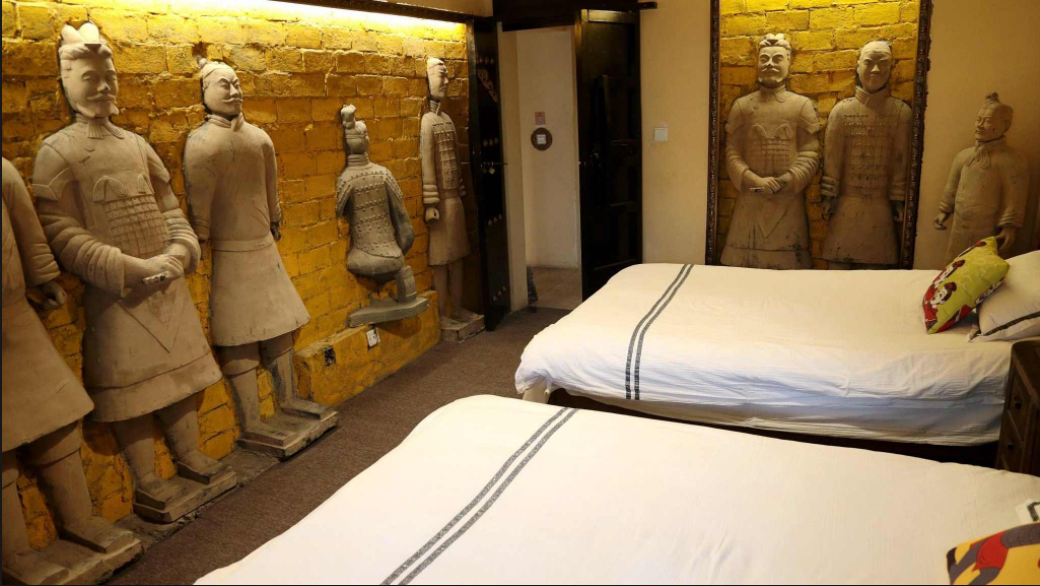Sleeping in the Popular Terracotta Warrior Hotel in Xian

The three themed suites, ranging in size from 80 square meters to 100 square meters each, are located in the city center of Xian, the hometown of the terracotta warriors.
The terracotta army, discovered in 1974, is one of China’s biggest tourist attractions, attracting hundreds of thousands of visitors a year. It was built by the first emperor of Qin (221-207 BC), who unified China for the first time in history.
The Airbnb-style hotel is owned by Guo Zhihua, 53, a local from Xian. A taxi driver in the 1990s, Guo spent most of his life driving tourists to see the warriors in the Emperor Qinshihuang Mausoleum Site Museum.
“A lot of my colleagues park their cars, smoke and chat. But I prefer to go to the pits with my passengers and tell them the stories of the warriors, like a guide. Over the years, I’ve become very fond of the warriors, “he said.
Guo placed more than 200 replicas of the soldiers in three rooms of the hotel, which he named pit 1, pit 2 and pit 3. The sculptures are under the bed, under the washbasin, in front of the toilet seat and on the wall. Soldiers with serious faces are also painted on the tiles and pillowcases.
Guo said that when the bed lights shine through a specially coated cover the image of the soldiers’ formation will be multiplied, so that guests will feel like an emperor reviewing the troops.
Since Beijing hosted the 2008 Summer Olympics, Guo’s rooms have attracted thousands of tourists from 30 countries and regions, which cost $100 to $200 a night. I hope there will be a growing interest in Chinese history,” Guo said.
The hotel is fully booked until May. “One day, I got 400 bookings in two hours,” he said.
Xi ‘an is a popular tourist attraction. During the three-day Spring Festival holiday, the city received 2.453 million tourists, up 17.16 percent year-on-year.Tourists spent 983 million yuan ($143 million), up 24.24 percent year-on-year.
Despite the hotel’s growing popularity, some believe it is a knockoff and that sleeping in a grave is scary. One tenant complained in a widely circulated video that the warriors were staring at him and he couldn’t sleep all night.
Guo remained unfazed. “I want to provide more hotels themed with the history of the Han and Tang dynasties, so that overseas tourists can truly experience Chinese history and then come back to China, where tourists can inherit Chinese culture,” “he said.











